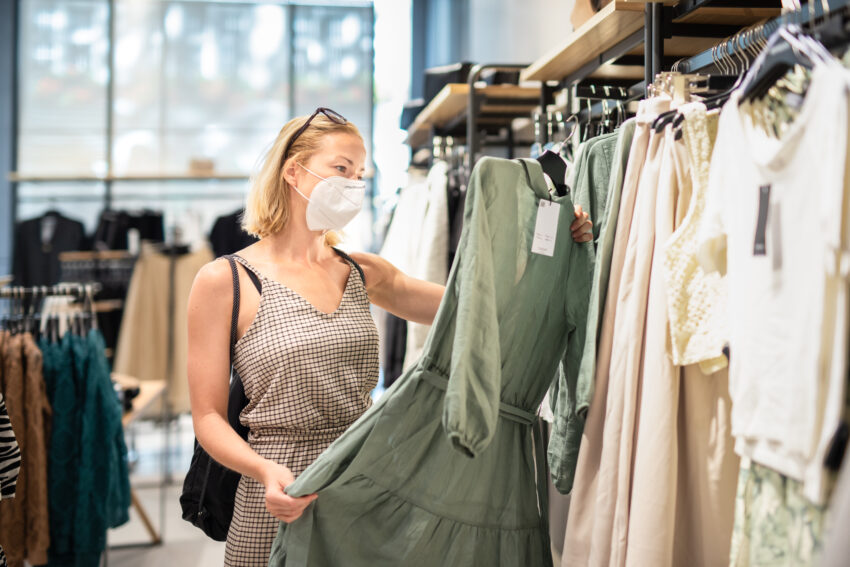Clothing sales were back to pre-Covid levels for the first time in November as consumers took advantage of Black Friday and started Christmas shopping early.
The Office for National Statistics (ONS) said total UK retail sales rose by 1.4% last month.
Demand for fashion rebounded while shoppers also spent in computer stores and on toys and jewellery.
But economists warned the lift could be dampened by the emergence of Omicron.
Sales of clothing rose by 2.9% in November and were 3.2% higher than February 2020 before the UK entered its first lockdown to stop the spread of Covid.
Overall retail sales beat expectations of 0.8% growth and were ahead of a 1.1% rise recorded in October.
Heather Bovill, deputy director for surveys and economic indicators at the ONS, said: “Clothing stores fared particularly well and have exceeded their pre-pandemic level for the first time. Computer, toy and jewellery retailers also reported robust sales this month.”
However, online sales continued to slip. “With more consumers choosing to visit the High Street and retail parks, the proportion of online sales continued on a downward trend, to their lowest level since March 2020,” Ms Bovill said.
Bethany Beckett, UK economist at Capital Economics, said it “was mainly due to a stronger-than-usual boost from Black Friday and people starting their Christmas shopping early”.
But she added: “That means it was unlikely to last, even before the Omicron outbreak further dampened sales volumes in December.”
Emma-Lou Montgomery, associate director at investment firm Fidelity International, said: “The lead up to the big day looks to be far from the Christmas bonanza high-street retailers had their hopes pinned on.”
With inflation at a 10-year high, fears around the Omicron variant lowering footfall and ongoing staff shortages, Ms Montgomery said that it’s going to be a “rough ride” through the next few months for retailers.


